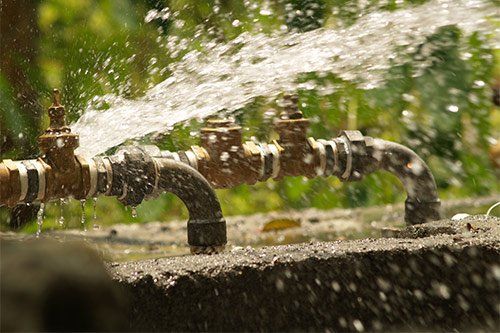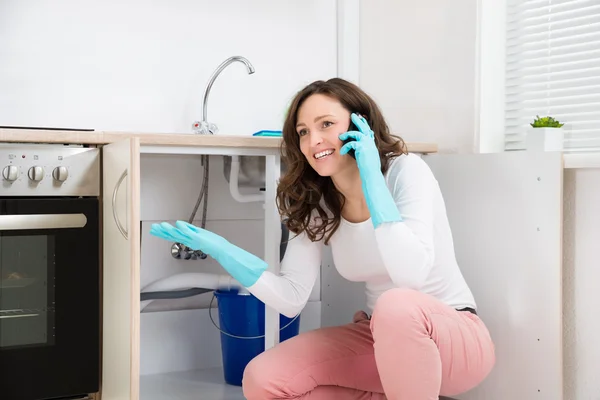The Top 5 Causes of Water Leaks
The Top 5 Causes of Water Leaks
Blog Article
They are making a few great observations relating to Common Causes of Water Leaks in the Home overall in this post down below.

"Beware of little expenses. A tiny leak will sink a wonderful ship." - Benjamin Franklin.
He couldn't have been a lot more appropriate because water leakages in our houses cause a waste of sources, boosting our water bills. Although this increase might seem minimal at first, it can cause substantial costs that can damage your bank. In addition to a rise in costs, water leakages also create unwanted organic growth, architectural damages, and also even electric threats.
Figuring out if you have a water leakage isn't constantly very easy as a result of being incapable to see most of the pipework in your house. If you have had a boost in your water expenses lately, noticed water spots on walls and ceilings, smelt poor odor, etc. You might intend to take into consideration requesting plumbing services to get it checked out.
There are numerous root causes of water leaks, and we have actually compiled the usual reasons listed below. Check to see if you have actually had related issues in your house lately.
Clogged drains
Food particles, dirt, and also grease can create clogged drains as well as block the passage of water in and out of your sink. If undealt with, raised stress within the seamless gutters can cause an overflow and also finish up splitting or rupturing pipelines. To stay clear of blocked drains in your home, we encourage you to stay clear of pouring particles away and also routine cleaning of sinks.
High water stress
You saw your residence water pressure is higher than common however then, why should you care? It runs out your control.
It would be best if you cared because your ordinary water stress ought to be 60 Psi (per square inch) and although your house's plumbing system is designed to withstand 80 Psi. A boost in water stress can put a pressure on your residence pipes as well as lead to fractures, or even worse, ruptured pipes. Get in touch with a professional about managing it if you ever before see that your house water pressure is higher than normal.
Corrosion
As your pipework grows older, it obtains weak and more susceptible to rust after the constant flow of water with them, which can eat away at pipes and create splits. A visible indicator of deterioration in your home plumbing system is discoloration and also although this could be difficult to discover due to many pipes hidden away. Once they are old to make certain a sound plumbing system, we suggest doing a regular check-up every few years and also alter pipelines
Weakened pipeline joints
Pipeline joints are the components of our plumbing system where the pipelines link. It is vital to keep in mind that also though pipelines are developed to stand up to pressure and last for a while, they weren't developed to last forever; consequently, they would wear away over time. An usual sign of harmed pipe joints is too much noise from faucets.
Broken seals
An additional reason for water leakages in homes is broken seals of residence appliances that utilize water, e.g., a dish washer. When such appliances are installed, seals are installed around water ports for very easy flow of water through the device. For this reason, a busted seal can trigger leak of water when in operation.
With little or no knowledge of plumbing, understanding your house's plumbing system sufficient to take care of a few of these problems (without repercussion) can be a problem. Connect with plumbing specialists in Pittsburgh, Providence, Rochester, and also environ today, as well as they'll make those problems disappear.
He could not have actually been extra right because water leaks in our houses result in a waste of resources, boosting our water costs. If you have had an increase in your water bills recently, observed water stains on walls and ceilings, scented lousy odor, etc. A rise in water stress can put a stress on your home pipes and also lead to cracks, or even worse, ruptured pipes. Another cause of water leakages in residences is broken seals of house devices that make use of water, e.g., a dishwashing machine. When such devices are set up, seals are set up around water adapters for very easy flow of water through the device.
5 TIPS IN DETECTING A WATER LEAK IN YOUR HOUSE
Water leaks can be hard to find in your home, yet they can be so common. We rely on water every day in our home, which is why a leak can cause big problems. By detecting them early, you can save money and further damage, getting the problem fixed as soon as possible. Here are 5 tips to help you detect a water leak in your home, so you can contact a plumber straight away and get the issue sorted.
Check your water meter
Many people underestimate the value of the water meter in their home. It can be one of the best ways to tell if you have a leak early on, so you can get on top of it before issues start arising. Start by turning off all the water in your home: taps, washing machine, dishwasher, etc. Now take a look at the meter – if it’s still changing with everything turned off, it’s likely you have a fast-flowing leak that you need to get on top of straight away. If nothing changes, then leave your meter for an hour or two and come back to it. Did it change in this time? It’s likely you have a slower leak, which isn’t as urgent but still handy to get fixed so it doesn’t become a bigger problem.
Keep an eye on your bill
Another good way to detect a leak in your home is by keeping an eye on your water bill. It helps if you have a past bill from the same period of time. You can compare like for like and determine whether your water usage has increased significantly. If it has, there may be a leak in your system that you haven’t picked up before. A professional plumber can check through all of your pipes and determine where it is coming from.
Look for damage
If you have a leak inside your home, you will notice damage over time. Take a look at your showers and bathtubs and note whether any of the tiles surrounding the area seem to be discoloured or damaged in any way. There may be water stains, mould or peeling material that has resulted from a build up of moisture over time. Make sure you take a look under sinks at the back of cupboards that don’t get accessed regularly. This is where damage can go unnoticed and build up over periods of time.

I discovered that post about Where to Find Water Leaks when looking around the web. Sharing is caring. Helping people is fun. Kudos for your time. Kindly pay a visit to our blog back soon.
Plumbing challenges? Professional solutions await. Report this page